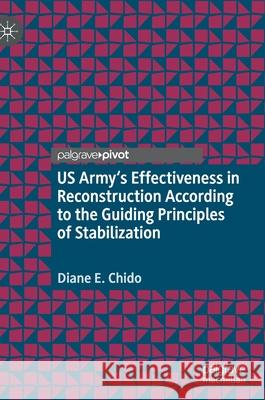Us Army's Effectiveness in Reconstruction According to the Guiding Principles of Stabilization » książka
topmenu
Us Army's Effectiveness in Reconstruction According to the Guiding Principles of Stabilization
ISBN-13: 9783030600044 / Angielski / Twarda / 2020 / 123 str.
Kategorie BISAC:
Wydawca:
Palgrave MacMillan
Język:
Angielski
ISBN-13:
9783030600044
Rok wydania:
2020
Wydanie:
2021
Ilość stron:
123
Waga:
0.31 kg
Wymiary:
21.01 x 14.81 x 0.97
Oprawa:
Twarda
Wolumenów:
01
Dodatkowe informacje:
Wydanie ilustrowane











